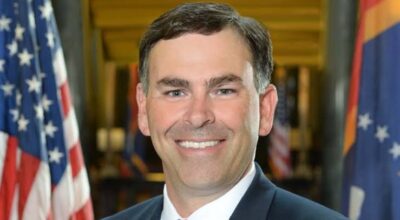Panolian’s listing of voters had unintended consequences
Published 9:33 pm Tuesday, July 6, 2021
By John Howell, Sr.
Publisher Emeritus
Last week’s decision by the U. S. Supreme Court upholding Arizona voting restrictions is seen as a harbinger for outcomes of future challenges to other voting restrictions adopted or under consideration by a number of Republican-controlled state legislatures.
Conservative Justices in a 6 to 3 vote upheld the Arizona Secretary of State who had been sued by the Democratic National Committee for requiring ballots cast in the wrong precinct to be discarded and for prohibiting campaign workers, community activists and most others from collecting ballots for delivery to polling places.
The flurry of restrictive voter legislation by states following the 2020 presidential election reminds me of voting restrictions enacted by the Mississippi Legislature in the early 1960s in an attempt to make registering to vote more difficult for Black people in the state. Among them was a requirement that the names of all new voter registration applicants be published in a legal notice in the county newspaper. The idea was to inform white landlords and employers so that economic pressure could be brought on Black people who sought to become voters.
That law went into effect in 1964 during Mississippi’s Freedom Summer when almost 1,000 mostly college-age, mostly white, mostly middle-and-upper class volunteers from out-of-state spread out to targeted areas around Mississippi to assist Black people with voter registration.
Panola County was a focal point of the registration effort because the county and then-Circuit Clerk Lynn Duke and later Ike Shankle were under Federal court order to register Black applicants. The order stemmed from a lawsuit brought against the county by the Panola County Voters League and eventually decided in the league’s favor by the Fifth Circuit Court of Appeals.
If you perused the legal notices of old copies of The Panolian — in the bound newspaper volumes on file in the Panola County Chancery Clerk’s office in Batesville or the microfiche files available in the Batesville Library — you would find the names of applicants listed weekly in six point type.
Many familiar names of local voter registration and equal rights advocates appear in those columns along with a good many names of White people who registered during the same period. But if the intention was to discourage Black people from registering, in Panola County at least, it had the opposite effect.
I heard about this some years afterward in conversations with those early voting pioneers as well as the volunteers who came to this county to assist with their registration efforts. The public outing that having their names published in the newspaper caused them some concern at first, according to Jean Drummond who was then a Patton Lane school teacher and whose contract renewal by the White school board was pending. She decided, since her husband was in the Army and his income could not be impacted by local decisions, to go ahead and register, she told me later. There were others including small farmers who owned their land and others less subject the whims of the power structure that then existed.
Those first names appearing in print encouraged others and soon the list of names published week grew longer each week. Having one’s name there became a matter of civic pride in the Black community — proof of action.
Chris Williams, who had just graduated from high school when he came to Panola County as the youngest worker among the approximately 800 volunteers in the state that summer, later told me that the list also allowed them to verify who had actually registered to vote from among the many who had promised that they were going to register.
Stories from that summer come to mind as reports from actions by state legislatures appear in news accounts. Actions have consequences. Sometimes they have unintended consequences.





